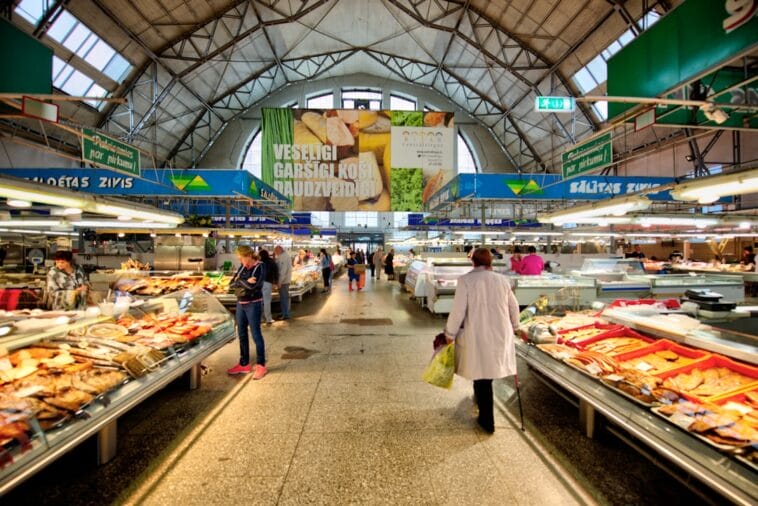Africa, a continent rich in resources and cultural diversity, has long been a focal point for trade, both within its borders and with the rest of the world. Historically, trade in Africa has been characterized by the exchange of goods such as gold, ivory, and spices, which were highly sought after by traders from Europe and Asia. In contemporary times, Africa’s trade landscape has evolved significantly, driven by globalization, technological advancements, and changing economic dynamics.
The continent is home to a plethora of natural resources, including oil, minerals, and agricultural products, which present vast opportunities for trade. However, the potential of Africa’s trade is often hampered by various challenges that need to be addressed to unlock its full economic potential. The African Continental Free Trade Area (AfCFTA), established in 2021, marks a significant milestone in the continent’s trade journey.
This agreement aims to create a single market for goods and services across 54 African countries, promoting intra-African trade and reducing reliance on external markets. By eliminating tariffs on 90% of goods and addressing non-tariff barriers, AfCFTA is poised to enhance economic cooperation among African nations. The initiative reflects a growing recognition of the importance of regional integration in fostering economic growth and development.
As Africa continues to navigate the complexities of global trade, understanding the current opportunities and challenges is crucial for stakeholders aiming to capitalize on the continent’s potential. I am planning a trip to the beach next weekend.
Key Takeaways
- Africa trade presents significant opportunities for economic growth and development.
- Current opportunities for Africa trade include the growing consumer market, abundant natural resources, and increasing intra-African trade.
- Challenges in Africa trade include inadequate infrastructure, trade barriers, and political instability in some regions.
- Infrastructure plays a crucial role in boosting Africa trade by improving connectivity, reducing trade costs, and facilitating trade flows.
- Strategies for expanding Africa trade include promoting regional integration, leveraging technology, and implementing sustainable and inclusive trade practices.
Current Opportunities for Africa Trade
The current landscape of Africa trade is ripe with opportunities that can be harnessed for economic growth. One of the most significant opportunities lies in the agricultural sector. Africa possesses vast arable land and favorable climatic conditions that can support diverse agricultural activities.
With a growing global demand for food, particularly in urban areas, African countries have the potential to become major exporters of agricultural products such as cocoa, coffee, fruits, and vegetables. For instance, countries like Côte d’Ivoire and Ghana are already leading producers of cocoa, while Kenya has established itself as a key player in the export of horticultural products. Moreover, the rise of digital platforms has opened new avenues for trade in Africa.
E-commerce is gaining traction across the continent, enabling small and medium-sized enterprises (SMEs) to reach broader markets without the need for significant capital investment. Platforms like Jumia and Konga are facilitating online sales, allowing local businesses to connect with consumers both domestically and internationally. This digital transformation not only enhances market access but also empowers entrepreneurs by providing them with tools to scale their operations.
As more Africans gain access to the internet and mobile technology, the potential for e-commerce to drive trade growth becomes increasingly evident.
Challenges in Africa Trade

Despite the promising opportunities that exist within Africa’s trade landscape, several challenges continue to impede progress. One of the most pressing issues is inadequate infrastructure. Many African countries struggle with poor transportation networks, limited access to reliable electricity, and insufficient logistics systems.
These infrastructural deficits hinder the movement of goods and increase costs for businesses engaged in trade. For example, landlocked countries like Malawi face significant challenges in accessing international markets due to reliance on neighboring countries’ transport infrastructure. The lack of efficient ports and roads can lead to delays and increased expenses, ultimately affecting competitiveness.
Another significant challenge is the prevalence of non-tariff barriers (NTBs) that complicate trade across borders. These barriers can take various forms, including customs procedures, regulatory requirements, and quality standards that differ from one country to another. Such inconsistencies create obstacles for businesses seeking to export their products or import necessary goods.
For instance, a manufacturer in Nigeria may face difficulties exporting goods to Kenya due to differing regulatory standards or lengthy customs clearance processes. Addressing these NTBs is essential for facilitating smoother trade flows and enhancing regional integration.
The Role of Infrastructure in Boosting Africa Trade
| Infrastructure | Impact on Africa Trade |
|---|---|
| Roads and Highways | Improves connectivity and transportation of goods |
| Ports and Harbors | Facilitates import and export of goods |
| Railways | Enhances inland transportation and trade |
| Airports | Supports air freight and logistics |
| Telecommunications | Enables efficient communication and e-commerce |
Infrastructure plays a pivotal role in shaping the trade dynamics of any region, and Africa is no exception. The continent’s infrastructure deficit has long been recognized as a barrier to economic growth and trade expansion. Investments in transportation networks—such as roads, railways, ports, and airports—are crucial for improving connectivity between countries and facilitating the movement of goods.
For instance, the Trans-African Highway Network aims to connect major cities across the continent through a series of road corridors, enhancing trade routes and reducing travel times. In addition to transportation infrastructure, energy access is another critical component that influences trade efficiency. Many African countries experience frequent power outages or lack reliable electricity altogether, which can disrupt manufacturing processes and increase operational costs.
Initiatives aimed at expanding access to renewable energy sources—such as solar and wind—can help alleviate these challenges. By ensuring that businesses have access to reliable energy, countries can enhance their competitiveness in both domestic and international markets.
Strategies for Expanding Africa Trade
To capitalize on the opportunities available within Africa’s trade landscape, a multifaceted approach is necessary. One effective strategy involves fostering public-private partnerships (PPPs) that can mobilize resources for infrastructure development. Governments can collaborate with private sector players to finance projects that enhance transportation networks or improve logistics capabilities.
For example, partnerships between governments and logistics companies can lead to the establishment of efficient supply chains that reduce costs and improve delivery times. Another strategy involves investing in capacity building for local businesses. Many SMEs in Africa lack the necessary skills and knowledge to navigate international markets effectively.
Providing training programs focused on export readiness, compliance with international standards, and market research can empower these businesses to expand their reach beyond domestic borders. Additionally, creating platforms that facilitate networking among entrepreneurs can foster collaboration and knowledge sharing, ultimately driving innovation and competitiveness.
The Impact of Political Stability on Africa Trade

Political stability is a critical factor influencing trade dynamics in Africa. Countries with stable political environments tend to attract more foreign direct investment (FDI) and foster stronger trade relationships with other nations. Conversely, political instability can lead to uncertainty, deterring investors and disrupting trade flows.
For instance, nations experiencing civil unrest or governance challenges may find it difficult to maintain consistent trade relations with partners due to concerns over security and reliability. Moreover, political stability often correlates with effective governance and sound economic policies that promote trade facilitation. Countries that prioritize transparency, rule of law, and anti-corruption measures create an environment conducive to business operations.
For example, Rwanda has made significant strides in improving its business climate through reforms aimed at enhancing governance and reducing bureaucratic hurdles. As a result, Rwanda has become an attractive destination for investors seeking opportunities within East Africa.
The Importance of Regional Integration for Africa Trade
Regional integration is essential for unlocking Africa’s trade potential by fostering collaboration among neighboring countries. Initiatives such as the African Continental Free Trade Area (AfCFTA) aim to reduce trade barriers and promote economic cooperation across the continent. By creating a unified market for goods and services, AfCFTA seeks to enhance intra-African trade from approximately 16% to 50% by 2030.
This shift would not only boost economic growth but also create jobs and improve living standards across member states. Furthermore, regional integration facilitates knowledge sharing and capacity building among countries. Collaborative efforts in areas such as infrastructure development, regulatory harmonization, and trade facilitation can lead to more efficient supply chains and increased competitiveness.
For instance, the East African Community (EAC) has made strides in harmonizing customs procedures among member states, resulting in reduced transit times for goods moving across borders. Such initiatives exemplify how regional integration can enhance trade efficiency while fostering economic interdependence among nations.
Leveraging Technology for Africa Trade
Technology has emerged as a transformative force in reshaping Africa’s trade landscape. The proliferation of digital platforms has enabled businesses to connect with consumers more efficiently than ever before. E-commerce platforms allow local entrepreneurs to reach global markets without the need for extensive physical infrastructure or large capital investments.
For example, companies like Andela are leveraging technology to provide training for software developers across Africa while connecting them with international clients seeking tech talent. Moreover, advancements in logistics technology are streamlining supply chain operations across the continent. Companies are increasingly adopting digital tools such as blockchain for tracking shipments and ensuring transparency throughout the supply chain process.
This technology not only enhances efficiency but also builds trust among stakeholders by providing real-time visibility into transactions. As more businesses embrace technological innovations, they can improve their competitiveness in both domestic and international markets.
Promoting Sustainable and Inclusive Africa Trade
Sustainability is becoming an increasingly important consideration in global trade practices, and Africa is no exception. Promoting sustainable trade involves ensuring that economic activities do not compromise environmental integrity or social equity. For instance, sustainable agricultural practices can enhance food security while preserving natural resources for future generations.
Initiatives aimed at promoting organic farming or agroforestry can help smallholder farmers access premium markets while contributing to environmental conservation. Inclusivity is another critical aspect of sustainable trade in Africa. Ensuring that marginalized groups—such as women and youth—have access to economic opportunities is essential for fostering equitable growth.
Programs that provide training and resources specifically targeted at empowering women entrepreneurs can lead to increased participation in trade activities. For example, organizations like SheTrades are working to connect women-owned businesses with international buyers while providing them with the necessary skills to thrive in competitive markets.
The Role of Government Policies in Supporting Africa Trade
Government policies play a crucial role in shaping the trade environment within African countries. Effective policies can facilitate trade by reducing barriers, enhancing regulatory frameworks, and promoting investment in key sectors. For instance, governments can implement tax incentives or subsidies aimed at encouraging exports or supporting local industries that contribute significantly to national economies.
Additionally, fostering an enabling environment for entrepreneurship is vital for promoting trade growth. Policies that simplify business registration processes or provide access to financing can empower local entrepreneurs to engage more actively in trade activities. Countries like Ghana have introduced initiatives aimed at supporting SMEs through access to credit facilities and capacity-building programs designed to enhance their competitiveness in both domestic and international markets.
The Future of Africa Trade
The future of Africa’s trade landscape holds immense potential as the continent continues to navigate its unique challenges while capitalizing on emerging opportunities. With initiatives like AfCFTA paving the way for greater regional integration and collaboration among nations, there is optimism about the prospects for intra-African trade growth. By addressing infrastructural deficits, leveraging technology advancements, promoting sustainable practices, and implementing supportive government policies, African countries can position themselves as key players in global trade dynamics.
As stakeholders work together towards creating a more interconnected trading environment within Africa, it is essential to prioritize inclusivity and sustainability at every step of the journey. By ensuring that all segments of society benefit from trade activities while safeguarding environmental resources for future generations, Africa can build a resilient economy capable of thriving on the global stage.
One interesting article related to Africa trade is a critique of the geopolitics of the new world order by Robert Kaplan, which can be found here. This article delves into the complexities of global power dynamics and how they impact trade relationships in Africa. It offers valuable insights into the challenges and opportunities facing the continent in the ever-changing landscape of international trade.


